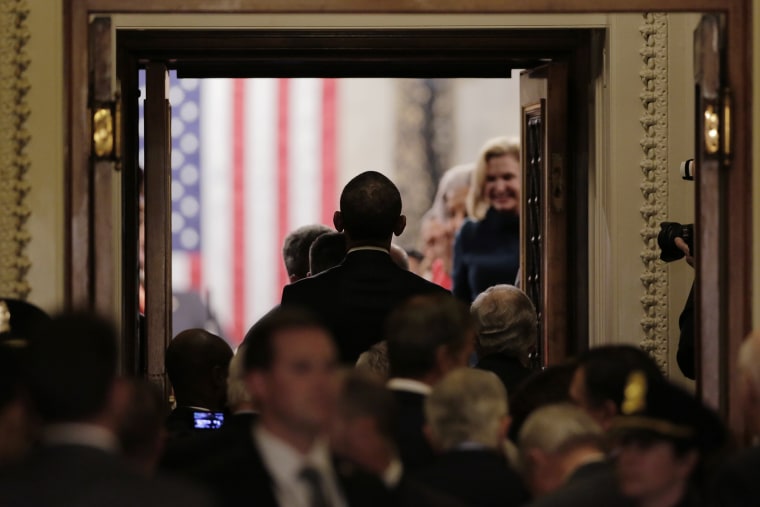In fending off intraparty discontent brewing among Democrats, the Obama administration on Wednesday pledged to step-up resources for refugees fleeing violence and chaos in Central America.
Secretary of State John Kerry said the U.S. will expand its refugee admission program to help families from Guatemala, Honduras and El Salvador find “a safe and legal alternative” to braving a dangerous journey to the U.S. on their own. “This is who we are, that is what we do,” Kerry said Wednesday at the National Defense University. “The refugee crisis is not just a Syrian issue.”
RELATED: Obama administration to expand refugee plan
Administration officials have said for months that the U.S. plans to address the root causes behind a 2014 humanitarian crisis at the border. But Kerry’s announcement Wednesday is unlikely to quell mounting tensions coming from even the administration’s most loyal allies.
Leaders in the pro-immigrant rights movement harshly criticized the Obama administration for carrying out a series of deportation raids that targeted Central American asylum-seekers who came during the height of the border crisis. Some 120 people, mostly women and children, were swept up in last week’s raids. Of those, at least 77 have already been deported, Immigration and Customs Enforcement officials say.
But in a crucial moment, the highest immigration court in the country stepped in to delay the deportations of as many as 12 families. Countering the administration’s assertions that the people targeted in the raids had exhausted all legal options to remain in the U.S., those families are being given a second chance.
The raids have injected tremors of fear throughout immigrant communities nationwide.
As many as 146 House Democrats have signed onto a letter calling on the Department of Homeland Security (DHS) to promptly end the raids and ensure that families already taken into custody be given their due process rights.
“DHS is carrying out these removal operations for the purpose of deterring more Central Americans from coming to the United States,” California Rep. Lucille Roybal-Allard said in a press conference on Tuesday. “This has proven to be a failed policy — a policy that does not live up to our American values or our time-honored tradition of offering refuge to those fleeing violence and brutality in their home country.”
Top White House advisers and DHS officials have been dispatched to Capitol Hill twice in the last week to stomp out fires and ease tensions with Democrats. But leaders are not backing down as criticism piles up beyond the halls of Congress.
The Boston Globe’s editorial board on Tuesday took shots at the administration for rushing to treat the symptoms rather than the underlying problems in Central America.
RELATED: Obama rebukes anti-refugee politicians
“Obama, who has earned the ‘deporter-in-chief’ moniker, should halt this politically motivated effort and consider the senselessness of sending immigrants back to countries from which they will soon flee again,” the board wrote.
Immigrant advocates have launched “know your rights” campaigns warning the community to not trust federal agents or open their doors to law enforcement. Meanwhile in Montgomery County, Maryland, local leaders have instructed police to not cooperate in the raids.
In the backdrop to the raids, a temporary decline in the number of Central American families caught at border has given way in recent months, mounting a sense of urgency to deter others from making the journey.
Compounding the issue, the new dynamic at the border comes amid a heightened sense of alarm fueled by terror attacks home and abroad. The climate of fear has surrounded refugees, mainly those from Syria, and the vetting process that they face to be resettled in the United States. And though the Central American families are not connected to the Syrian refugee crisis and undergo a far different legal process in applying for asylum, they are being swept up in the negative spotlight nonetheless.
Kerry on Wednesday called the situation the “worst refugee crisis that the world has seen since the second World War.” But the stigma against refugees and increasingly incendiary rhetoric around their resettlement, is only making matters worse, he said. Kerry went on to take a veiled shot at GOP presidential candidates, namely Donald Trump, who have perpetuated negative stereotypes and stoked fresh rounds of fear.
“Lately this critical work has been conducted against the backdrop of some pretty nasty politics,” Kerry said, “with people making statements on the refugee issue that seem designed to scare our citizens but have no basis in the facts."
